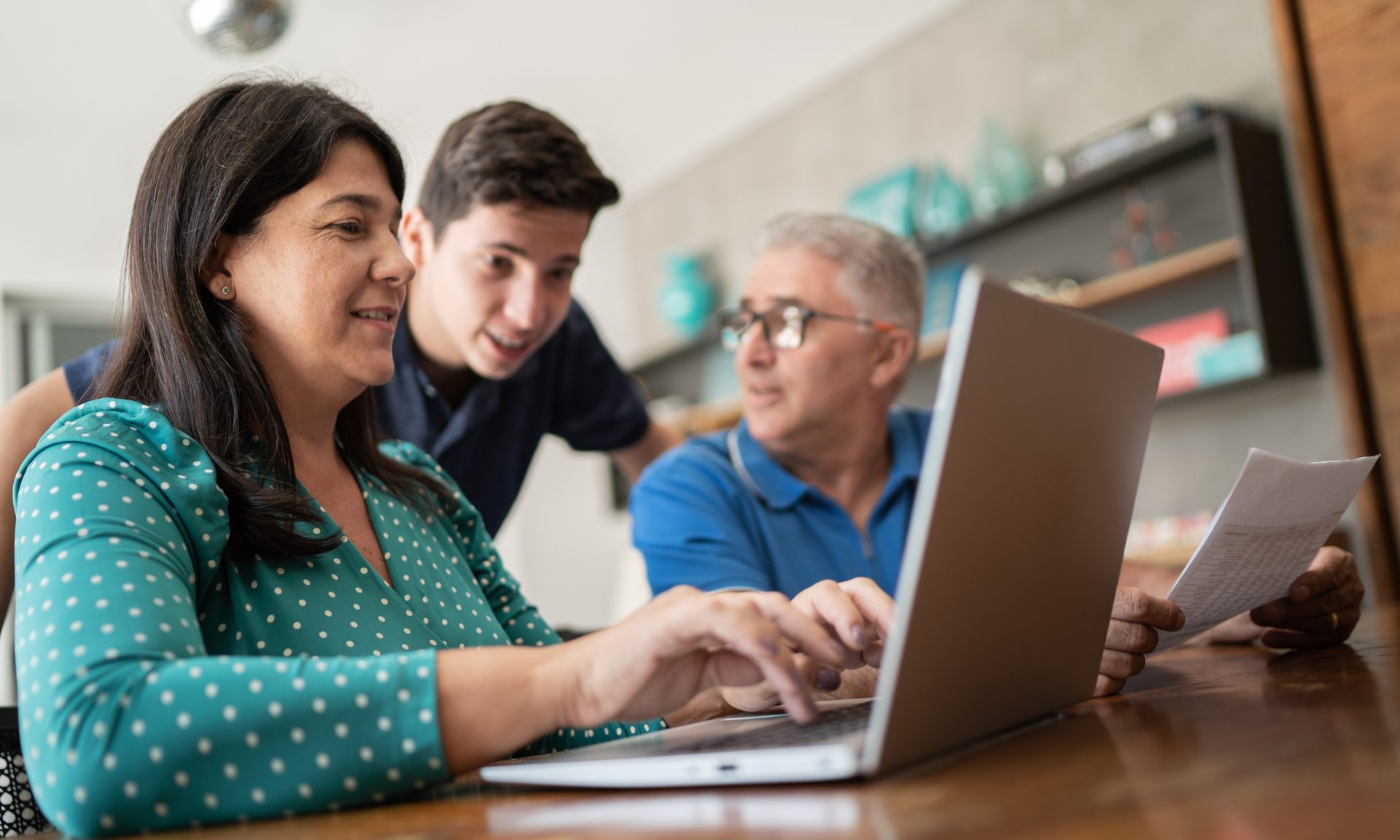How to Create a Family Budget
Start with a quick check of money in and money out, then make a plan that helps you work toward family financial goals.

Many, or all, of the products featured on this page are from our advertising partners who compensate us when you take certain actions on our website or click to take an action on their website. However, this does not influence our evaluations. Our opinions are our own. Here is a list of our partners and here's how we make money.
Creating a family budget takes teamwork, time and regular tweaking, but you’ve got this. We’ll walk you through it, but let’s first define "budget" so you know what to expect.
What is a family budget?
A family budget is a plan for your household’s incoming and outgoing money over a certain period of time, such as a month or year. For example, you may aim for certain dollar amounts or percentages of monthly income to go toward various expenses, like groceries, as well as saving, investing and paying off debt.
How to make a family budget
Start by estimating your family expenses
Set aside time on the calendar when you and the other adults in your household can start your budget, says Orlando-based certified financial planner Angela Moore. (This could be you and your partner, grown kids or parents who live with you.) Scheduling holds you accountable and helps ensure everyone is feeling level-headed and up to the task.
“The first step is creating transparency about where you are now,” Moore says. She recommends starting with an audit by tracking expenses.
Begin with estimates. Jot down what you think you have in savings. Then move on to debts: What’s the balance for each of your loans, as well as the monthly payments and the interest? Do the same exercise for monthly recurring expenses, like your water bill.
Finally, estimate the rest of your spending. Try breaking down how much you spend on groceries, gas, clothes and so on. Moore says you could list these expenses individually or as a group.
Remember: At this point, you’re making educated guesses about your family finances. “You just want an overview of everything,” Moore says, adding that this exercise should take about 15 minutes.
Find out how much your family actually spends
Take a short break to avoid getting overwhelmed. Then sign in to each of your financial accounts and list the actual amounts for the expenses you estimated.
Moore has walked many clients through this process. She says identifying the real numbers is usually “an awakening experience,” because many people drastically underestimate their expenses.
From this point, you can probably identify a couple of ways to tweak your family finances. Maybe you didn’t realize just how much interest you were paying on a certain loan, so you decide to schedule a time to call and negotiate. Or perhaps you see that you’re still paying for a subscription you ought to cancel. You may notice you're spending twice as much as you thought on groceries, so you explore how to use coupons or discount grocery stores.
“Figure out where you can reduce or eliminate certain expenses and how you can relocate those funds to be more in line with your goals,” Moore says.
At the very least, now you better understand where your family’s money is going. You also have a baseline of your savings, debts and expenses so you can see how those amounts change as you start budgeting.
Add up your family income and make a spending plan
In addition to knowing where your money is going, get clear on how much money is coming in. Note the monthly take-home pay total, then take a first whack at a budget.
One option is the 50/30/20 budget. It splits your income three ways:
- 50% toward needs, such as groceries, housing, basic utilities, transportation, insurance, child care and minimum loan payments.
- 30% toward wants, such as travel, gifts and meals out.
- 20% toward saving, for an emergency fund or for retirement, and debt paydown beyond minimums.
Use the calculator to learn how your family’s income would be divided into these categories.
But the 50/30/20 method is just one way to plan for your money, and may be tough to achieve if you’re just learning how to budget or live in a high-cost area. You can choose from several other types of budgets, which vary in their rigidity (do you want to track every dollar?) and goals (are you more focused on eliminating debt or building savings?).
Try a worksheet or app for family budgeting
You may also benefit from a budgeting tool. For example:
- NerdWallet's free budget spreadsheet prompts you to enter every household expense, then shows how your spending aligns with the 50/30/20 breakdown.
- Microsoft 365, Google Drive and other websites also offer free budget templates and spreadsheets that you can share within your household.
- Some budget apps, such as Honeydue, let you and your partner reference each other’s spending and saving information. Other apps, such as Goodbudget and YNAB, can also work for family finance goals.
If you use a tool, make sure it’s one you’re comfortable with and that you’ll actually use, says Atlanta-based certified financial planner Serina Shyu. Use “whatever works best for the skill level or motivation level you have,” she says.
So if you’re not spreadsheet-savvy, go another route. Or if you’re not going to input your expenses every day, use a tool that tracks your spending for you.

Keep budgeting and communicating
A family budget doesn’t have to be perfect, Shyu says. In fact, you’ll wind up tweaking it often, particularly if you have kids or dependents whose expenses change over time.
What’s more important than getting the budget “right” is continually checking on it with your household. Like your initial audit, schedule regular budget reviews.
When you check in, note how your spending has changed (or not), discuss what you might do differently going forward and plan for upcoming expenses. (For example, if a family vacation is coming up, maybe you decide to cut back on certain expenses and put more toward a travel fund.)
It’s important to communicate, Shyu says, not just about the money itself but how you’re feeling about it. Express if you’re nervous about budgeting, for example, or ashamed of debt. That way, she says, “you’ll be coming from a place of understanding.”
One more thing to communicate: your individual and family family goals. That information will help you plan for your money and keep at it.
As Shyu puts it: “Once you figure out that ‘why,’ you’ll be more motivated.”
» See our picks for the best budget apps
Article sources
NerdWallet writers are subject matter authorities who use primary,
trustworthy sources to inform their work, including peer-reviewed
studies, government websites, academic research and interviews with
industry experts. All content is fact-checked for accuracy, timeliness
and relevance. You can learn more about NerdWallet's high
standards for journalism by reading our
editorial guidelines.
Related articles






